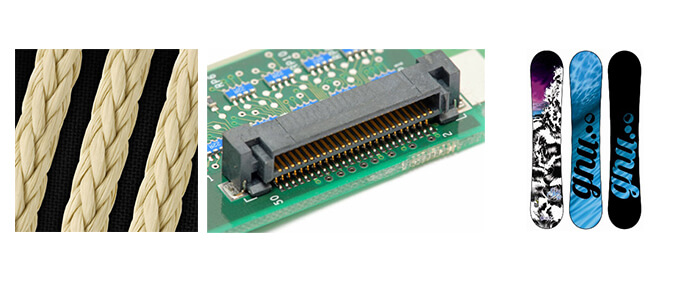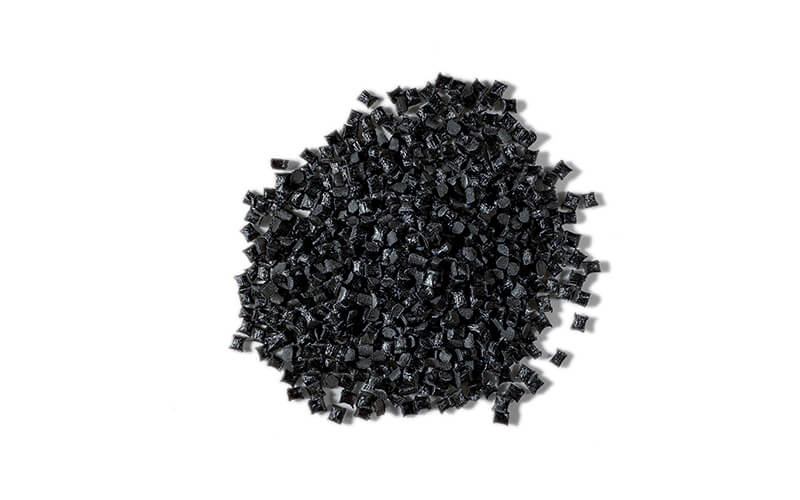LCP materials are a class of aromatic polymers that exhibit exceptional strength and rigidity. Five times stronger than steel and ten times stronger than aluminum. LCP resin can replace some materials such as ceramics, metals, composites, and other plastics because its properties perform very well in harsh environments, including heat resistance and tolerance, high electrical resistance, excellent chemical resistance, inherent flame retardancy, good weather ability, and biocompatibility for medical applications.
- Good Chemical Resistance: Resistant to hydrolysis, weak acids and bases, alcohols, chlorinated hydrocarbons, esters, and ketones…
- High Dielectric Strength: The dielectric strength of liquid crystal polymer is much higher than common plastics.
- Excellent Resistance to creep, fatigue, high impacts, cuts, and abrasion.
- Good Cycle Repeatability: LCP's high melt flow and low thermal expansion in the direction of molecular orientation allow thin-walled parts to be easily molded without the part warping.
- Outstanding Dimensional Stability
ropes & cables, electronic support structures, sailcloth, reinforced hulls, fishing poles and lines, tennis strings, tennis rackets bicycle forks, golf clubs, hockey sticks, paragliders, skis, snowboards, automotive ignition system components, heater plug connectors, lamp sockets, transmission system components, pump components, coil forms and sunlight sensors and sensors for car safety belts…

30% GF
| Item | Property | Test Method | Unit | Value |
|---|---|---|---|---|
| Physical | Density | ASTM D792 | g/cm3 | 1.62 |
| Water Absorption | ASTM D570 | % | 0.03 | |
| Rockwell Hardness | ASTM D785 | R scale | 105 | |
| Mechanical | Tensile Modulus | ASTM D638 | psi | 2.3 × 106 |
| Tensile Strength | ASTM D638 | psi | 17,000 | |
| Flexural Modulus | ASTM D790 | psi | 2.1 × 106 | |
| Flexural Strength | ASTM D790 | psi | 2,4000 | |
| Izod Impact | ASTM D256 | ft-lb/in | 1.8 | |
| Thermal | Melting Point | - | °C/°F | 300 / 572 |
| Heat Deflection Temperature at 264 psi | ASTM D648 | °C/°F | 260 / 500 | |
| Coefficient of Linear Thermal Expansion | ASTM D696 | in./in./°F | 5 - 9 × 105 | |
| Flammability | UL 94 | - | V-0 | |
| Electrical | Electrical Volume Resistivity | ASTM D257 | Ω-cm | 1016 |
| Dielectric Constant | ASTM D150 | 1 MHz | 3.4 | |
| Dissipation Factor | ASTM D150 | 1 MHz | 0.028 | |
| Dielectric Strength | ASTM D149 | V/mm | 3.0 × 104 | |

